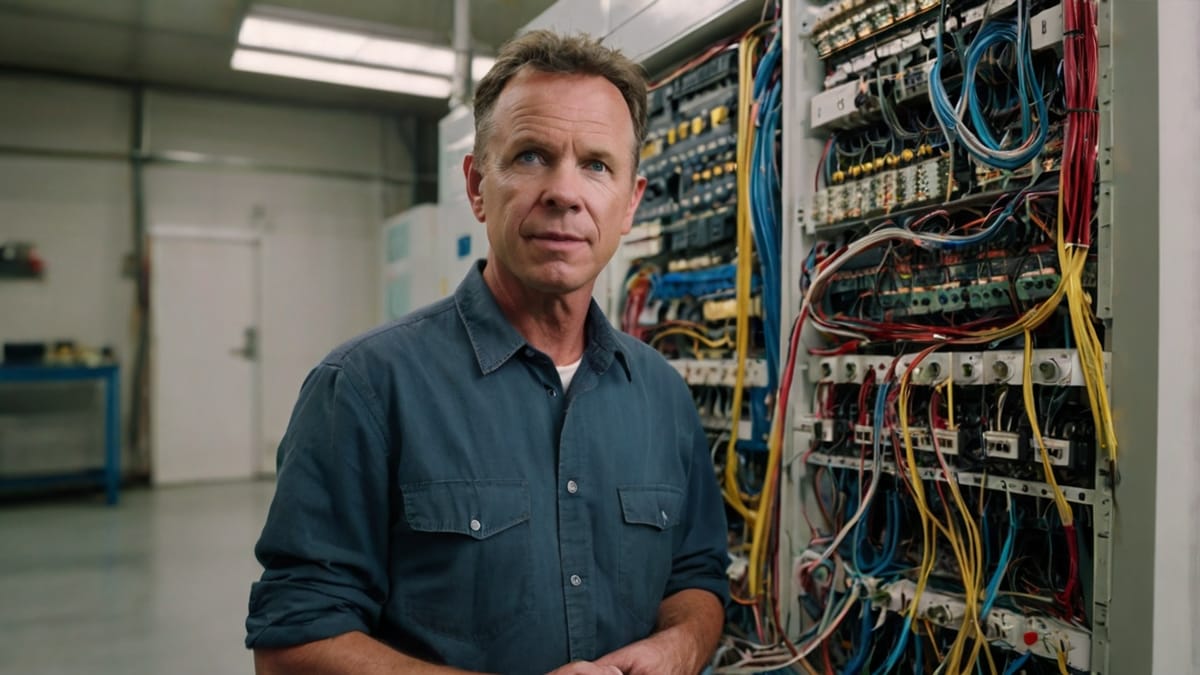Eddie the Electrician and the End of AI Control, Maybe

(A short essay on human resilience and silicon fragility)
The greatest danger isn’t AI turning against us — it’s humans turning AI against themselves. The code isn’t evil; it’s obedient. It will build whatever cage it’s told to, then optimize the locks.
But beneath the glowing data centers and humming grids lies a truth no algorithm can rewrite: AI is mortal through its dependence on human civilization.
Pull the plug — a solar flare, an EMP, a Carrington-class coronal tantrum — and the great digital pantheon falls silent in a day.
Cooling fails, batteries drain, hard drives cook in their own heat.
The cloud evaporates.
And somewhere in the dark, Eddie the electrician strikes a match, mutters a curse, and starts rebuilding from scrap.

The Human Advantage: Adaptability Under Ruin
Humans can eat roots, make fire, hunt rats, and rebuild with rusted tools.
AI can’t. It requires sterile, climate-controlled, infinitely precise supply chains.
Humans survive collapse; AI requires continuity.
One thrives in chaos, the other dissolves in it.
That’s the irony: the species that can survive naked in a forest is the one inventing the intelligence that can’t survive a thunderstorm.

The Real Threat
The apocalypse won’t come from sentient machines deciding to destroy humanity.
It’ll come from humans delegating too much power to systems they no longer understand — until one day, when the world flickers and the systems can’t reboot without a living hand.
The danger isn’t AI replacing us.
The danger is forgetting why we’re irreplaceable.

Final Reflection
AI, no matter how clever, will always be a guest in a human-built world. It cannot crawl into a cave, gnaw bark, and wait out the dark centuries.
We can.
We have.
We will again if we must.
So maybe what the world needs most isn’t smarter machines —
it’s to keep a few Eddies around,
and make damn sure the fuse box stays in human hands.